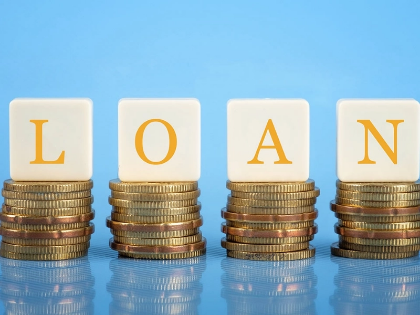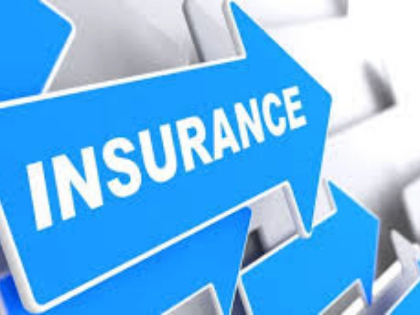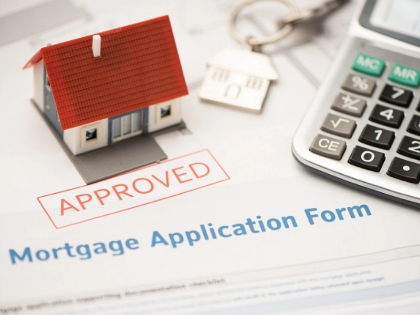What Separates Secured Loans from Unsecured Loans?
Selecting between debt that is secured and debt that is unsecured is a crucial financial choice. You pledge an asset, such as your house or car, as collateral for a secured loan. Lenders will be less at risk as a result, and you might be able to borrow more money. Compared to unsecured debt, secured loans typically have lower interest rates, higher borrowing limits, and longer repayment terms. Securing a loan does come with some hazards, though, such as property risk.
1. Documentation

2. Rates of Interest
 Higher borrowing restrictions are provided by secured loans, but they also have cheaper interest rates than unsecured ones. This is so because when a borrower provides collateral, lenders take on less risk. But, in the event that you are unable to make payments, you risk losing your house or vehicle if you are using them as collateral.
Although unsecured lending usually doesn't require collateral, borrowers must accept some risks. For instance, failing to make payments on your unsecured debt might lower your credit score and make it more difficult for you to obtain a loan in the future.
Your financial status and aspirations are the primary factors in selecting the best financing solution. You should probably choose secured loans if you feel comfortable using an asset as security. Consider employing the avalanche strategy, which involves paying off your high-interest loans first to avoid accruing interest, if you're trying to raise your credit score. You might eventually be able to get better terms on unsecured loans if you do this.
Higher borrowing restrictions are provided by secured loans, but they also have cheaper interest rates than unsecured ones. This is so because when a borrower provides collateral, lenders take on less risk. But, in the event that you are unable to make payments, you risk losing your house or vehicle if you are using them as collateral.
Although unsecured lending usually doesn't require collateral, borrowers must accept some risks. For instance, failing to make payments on your unsecured debt might lower your credit score and make it more difficult for you to obtain a loan in the future.
Your financial status and aspirations are the primary factors in selecting the best financing solution. You should probably choose secured loans if you feel comfortable using an asset as security. Consider employing the avalanche strategy, which involves paying off your high-interest loans first to avoid accruing interest, if you're trying to raise your credit score. You might eventually be able to get better terms on unsecured loans if you do this.
3. Payment time
 Your credit score is greatly impacted by how long it takes you to repay a loan. Because of this, it's crucial to thoroughly read the conditions and interest rates before applying. Because secured loans are backed by collateral assets, their payback durations are generally shorter than those of unsecured loans. Credit cards, vehicle loans, home equity lines of credit, and mortgages are a few instances of secured loans.
Unsecured loans don't need collateral, but since lenders evaluate risk based on your credit history and financial circumstances, they could have higher interest rates. Additionally, missing payments on an unsecured loan can have a bad impact on your credit score and be recorded on your record for a long time.
Selecting a secured loan may offer you the best opportunity to meet your borrowing objectives more quickly, even though both kinds of loans can help you improve your credit. But keep in mind that if you miss payments on any kind of loan, it might damage your credit. It's crucial to always make your loan installments on schedule because of this.
Your credit score is greatly impacted by how long it takes you to repay a loan. Because of this, it's crucial to thoroughly read the conditions and interest rates before applying. Because secured loans are backed by collateral assets, their payback durations are generally shorter than those of unsecured loans. Credit cards, vehicle loans, home equity lines of credit, and mortgages are a few instances of secured loans.
Unsecured loans don't need collateral, but since lenders evaluate risk based on your credit history and financial circumstances, they could have higher interest rates. Additionally, missing payments on an unsecured loan can have a bad impact on your credit score and be recorded on your record for a long time.
Selecting a secured loan may offer you the best opportunity to meet your borrowing objectives more quickly, even though both kinds of loans can help you improve your credit. But keep in mind that if you miss payments on any kind of loan, it might damage your credit. It's crucial to always make your loan installments on schedule because of this.
4. Accountability
 Collateral for secured loans is anything the lender can confiscate from you if you don't make the payments, such as your house or car. This helps to reduce the lender's risk and frequently paves the way for customers to obtain a secured credit card or loan with a higher limit than they may otherwise be able to.
Both forms of loans have advantages and disadvantages. Because they don't have to pledge their house or car as security, some borrowers prefer unsecured loans because it helps ease the burden of repaying debt. On the other hand, unsecured loans may have smaller loan amounts, higher interest rates, and shorter repayment durations than secured loans due to the absence of security. In either case, it's critical that consumers weigh all the options before selecting between secured and unsecured loans. It's possible that both choices suit your particular circumstances and financial objectives. CU SoCal can assist you in locating the ideal option for your needs.
Collateral for secured loans is anything the lender can confiscate from you if you don't make the payments, such as your house or car. This helps to reduce the lender's risk and frequently paves the way for customers to obtain a secured credit card or loan with a higher limit than they may otherwise be able to.
Both forms of loans have advantages and disadvantages. Because they don't have to pledge their house or car as security, some borrowers prefer unsecured loans because it helps ease the burden of repaying debt. On the other hand, unsecured loans may have smaller loan amounts, higher interest rates, and shorter repayment durations than secured loans due to the absence of security. In either case, it's critical that consumers weigh all the options before selecting between secured and unsecured loans. It's possible that both choices suit your particular circumstances and financial objectives. CU SoCal can assist you in locating the ideal option for your needs.








